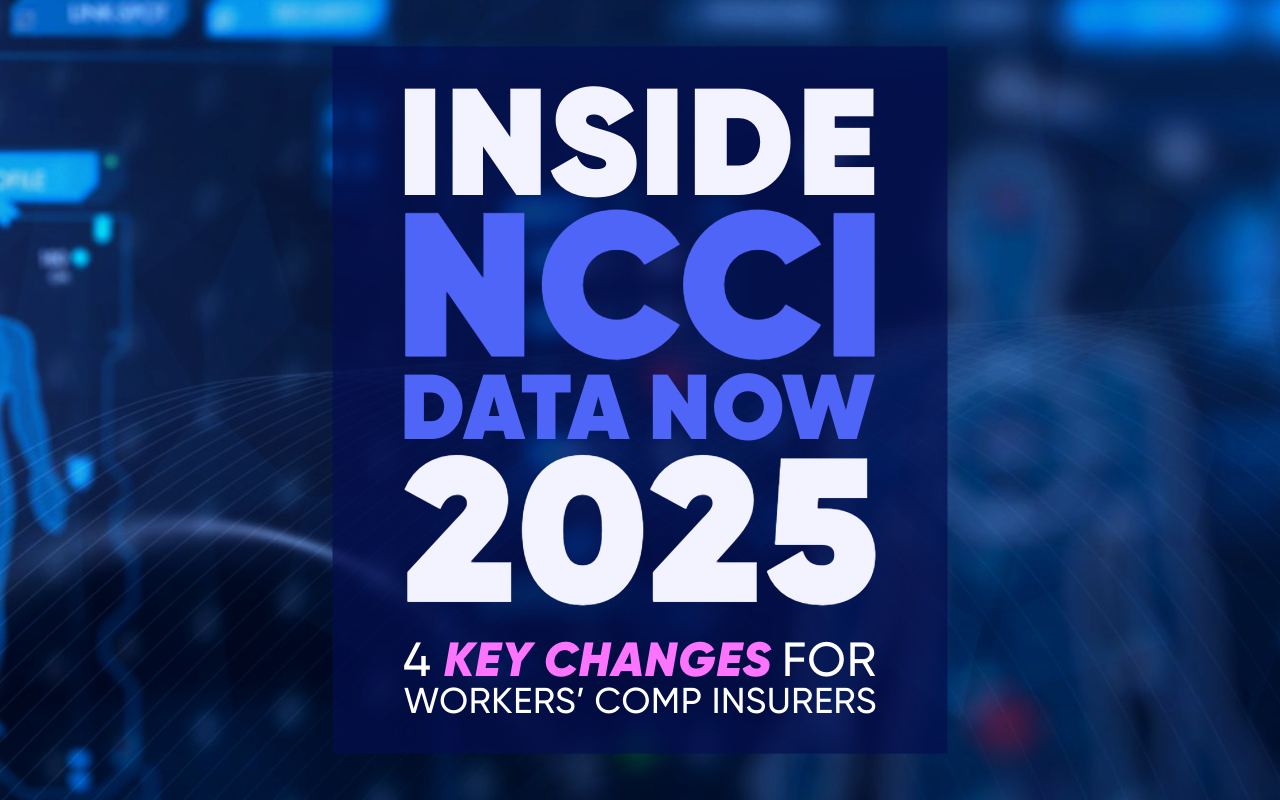Colin Moulton is the Vice President of Product Development for True Insurtech Solutions
The workers’ comp industry is undergoing major shifts in compliance requirements, data reporting mandates, and financial penalties for errors. The NCCI Data Now Program 2025 made it clear that insurers and self-insured groups must act now to stay ahead of these changes. Last month, I attended the event in Boca Raton, Florida, where experts broke down the most pressing regulatory changes and reporting challenges that will impact carriers in the months ahead. These key takeaways will help you stay ahead of compliance risks, avoid costly fines, and ensure seamless data reporting.
Here are my top four takeaways from the event and why they matter to True Insurtech Solutions and our customers.
1. More Carriers Will Be Required to Report Indemnity & Medical Data
What’s Changing?
The National Council on Compensation Insurance (NCCI) has expanded the scope of indemnity and medical data reporting by lowering the premium threshold for required submissions.
Previously, only carriers with 1% or more of a state’s workers’ compensation premium were required to report. Now, that threshold has dropped to 0.5%, and indications suggest that soon all carriers, regardless of size, will need to comply.
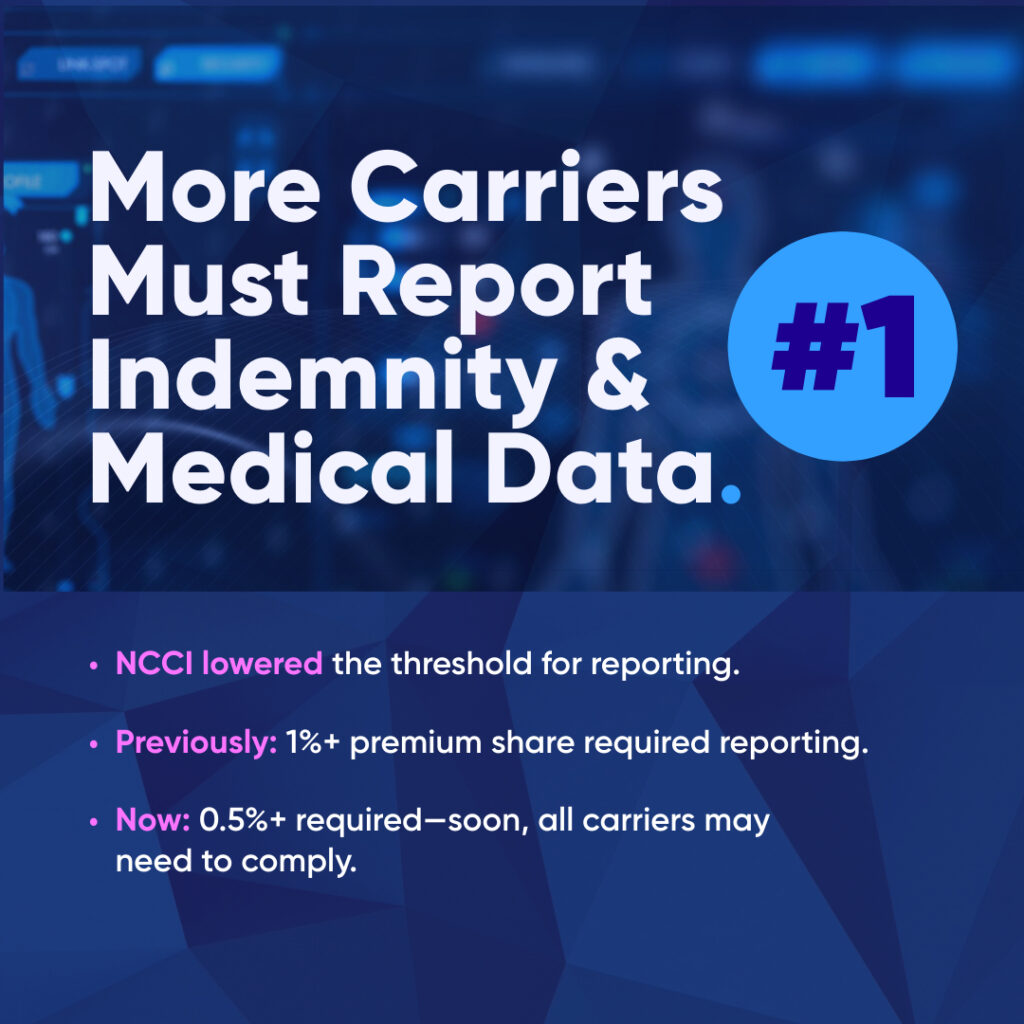
Why It Matters
These new reporting thresholds mean many insurers and self-insured groups will be required to submit indemnity data for the first time. With expanded compliance requirements come greater data management responsibilities—and higher risks of penalties for non-compliance.
Organizations will need efficient, error-free reporting to meet these mandates, and that’s where TruePolicy™ and TrueClaims™ provide an advantage. By streamlining data collection and submission, our platform ensures that insurers stay ahead of compliance without adding administrative burden.
Action Steps for Insurers
- Review your reporting obligations to determine if your organization is now required to submit indemnity and medical data.
- Assess your data infrastructure to ensure you can collect, validate, and submit accurate reports.
- Develop an internal compliance strategy to stay ahead of future reporting threshold changes.
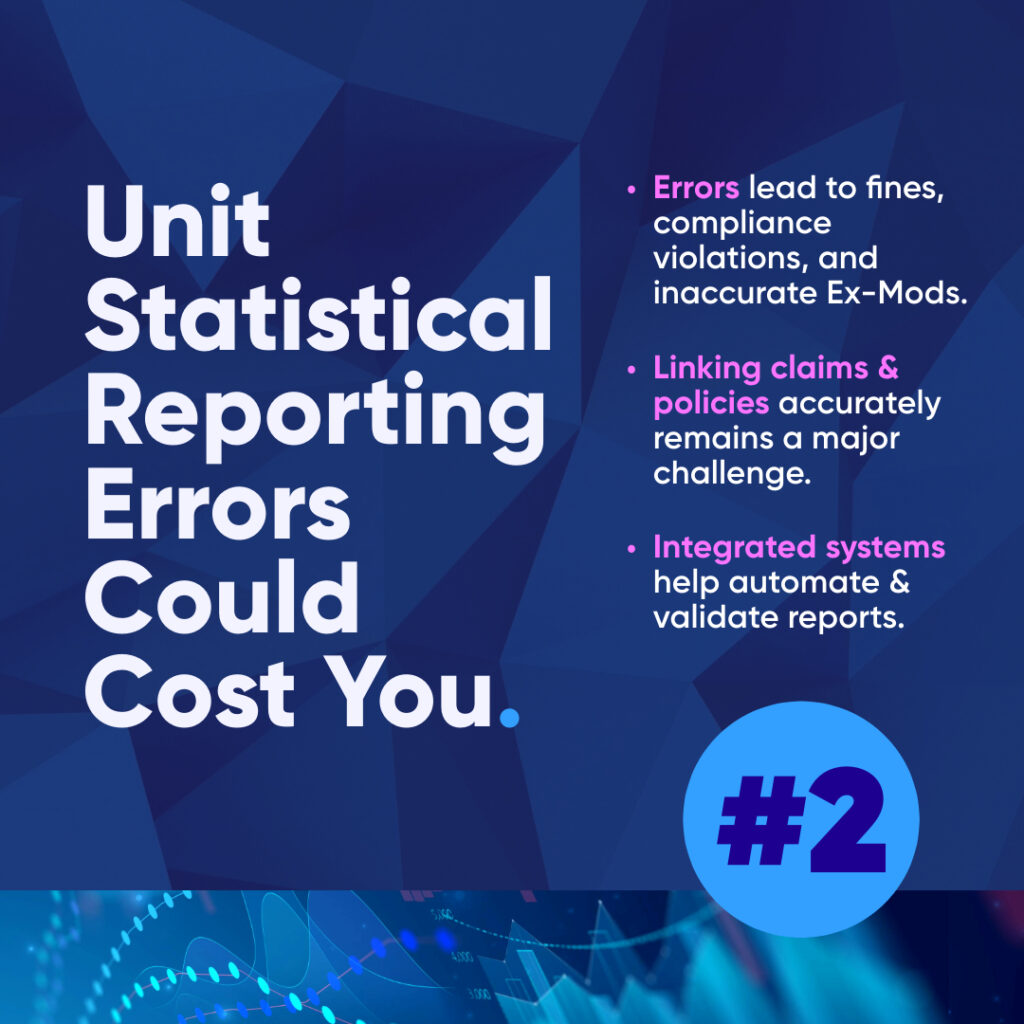
2. Unit Statistical Reporting Continues to Be a Challenge
The Problem
Many carriers struggle with Unit Statistical (Unit Stat) reporting, particularly linking claims and policies accurately. This was a recurring theme at the conference, with an entire session dedicated to common errors and best practices.
Why It Matters
Unit Stat data is critical because rating bureaus use it to calculate experience modifications (Ex-Mods) and set premium levels. Reporting inconsistencies can result in compliance violations, financial penalties, and miscalculated risk assessments.
To minimize errors, insurers should prioritize integrated systems that streamline data validation and automate error detection before submission. Addressing these challenges proactively reduces reporting delays and ensures compliance with regulatory requirements.
Action Steps for Insurers
- Audit your Unit Statistical data reporting process to identify common linking errors between policies and claims.
- Ensure that policy and claims data are properly integrated to avoid reporting inconsistencies.
- Work with rating bureaus and regulators proactively to correct errors before they result in penalties.
3. Preparing for Medical Data Call Reporting
What’s Coming?
Medical Data Call reporting has traditionally applied to a limited number of insurers, but upcoming changes will soon require more carriers to comply.
Why It Matters
Medical Data Call reporting is one of the most complex and data-heavy reporting requirements. It involves detailed medical transaction records, many of which are not currently captured in standard policy and claims data. Some of this information can be imported from third-party bill review vendors, but other fields will require system enhancements to ensure compliance.
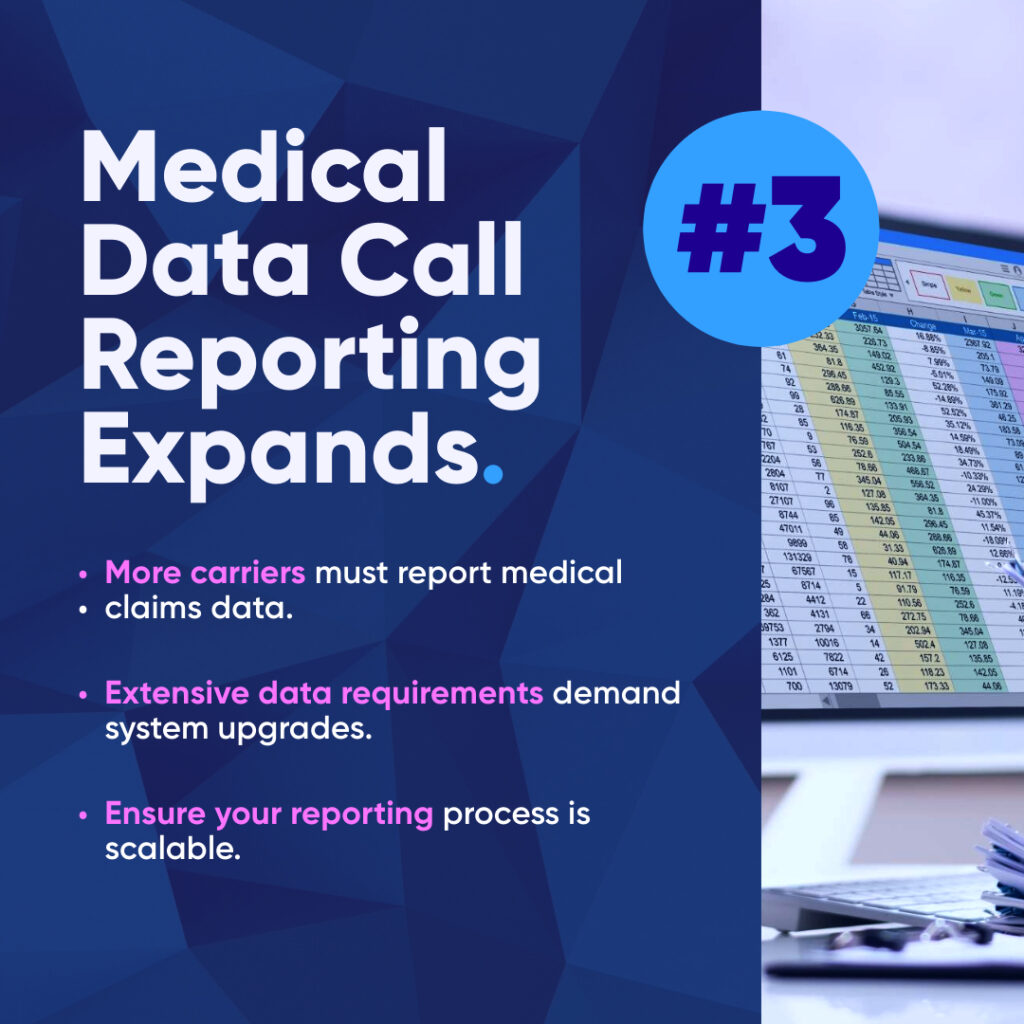
Action Steps for Insurers
- Determine if your organization will be required to comply with Medical Data Call reporting soon.
- Identify missing medical data elements and establish workflows to source them from internal systems or third-party vendors.
- Build a scalable, error-free reporting process to handle complex medical transaction records as requirements evolve.
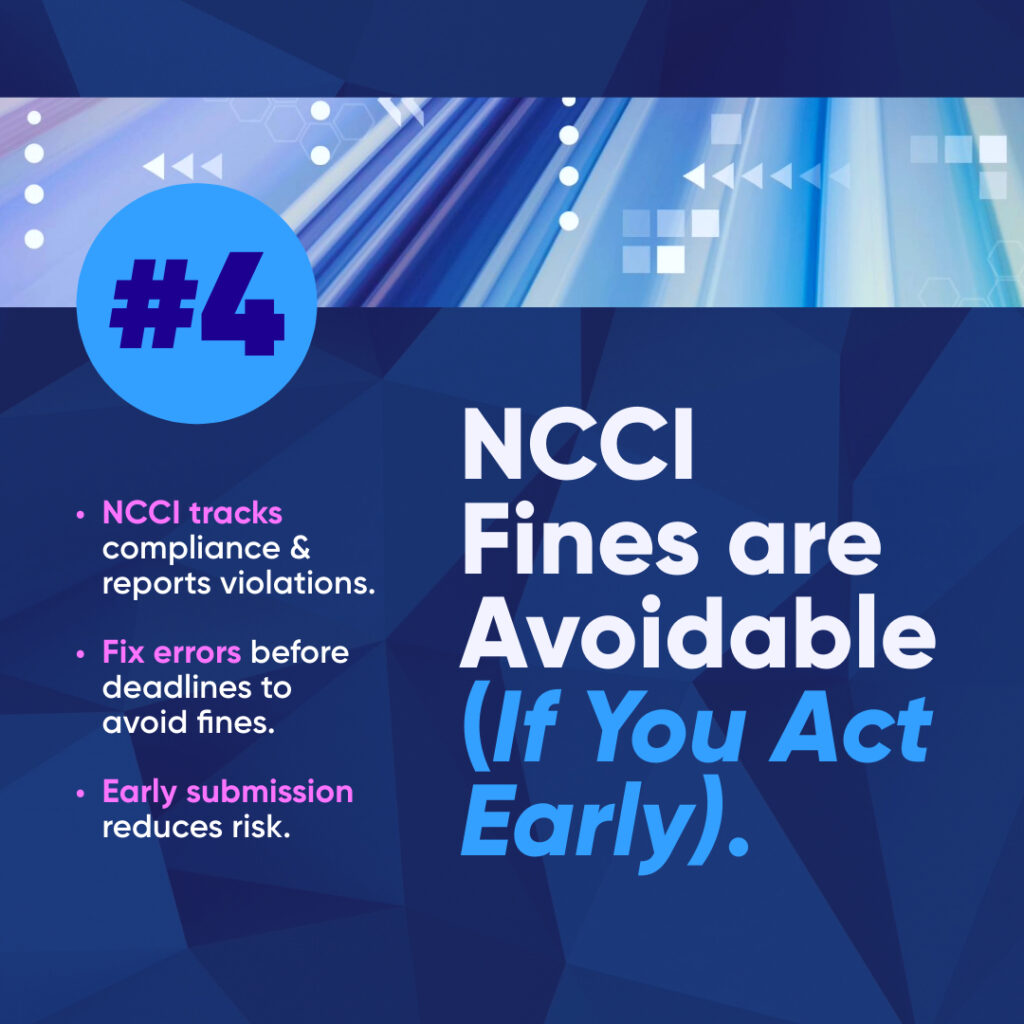
4. Compliance & Avoiding Costly Fines
What We Learned
One of the most important sessions covered how NCCI calculates fines for data reporting errors. They use a “report card” system to monitor carriers’ compliance and report issues to regulators.
Key Insight: Fines Are Avoidable
If errors are corrected before the deadline, no penalties are imposed. The best strategy? Submit data early—the sooner you report, the sooner you can identify and correct any issues. Waiting until the last minute increases the risk of compliance violations.
Action Steps for Insurers
- Submit data early to allow time for error detection and correction before deadlines.
- Implement automated validation checks to flag potential errors before submission.
- Monitor your organization’s compliance “report card” and address any deficiencies before they escalate to fines.
Final Thoughts
Beyond the technical takeaways, one of the most valuable parts of this event was the opportunity to connect with industry professionals. Attending events like NCCI Data Now is about more than keeping up with trends; it ensures our technology evolves alongside industry changes. By engaging directly with regulators, insurers, and data experts, we gain the insights needed to help our customers stay ahead of compliance challenges.
At True, we believe that compliance and reporting shouldn’t be a burden for carriers and self-insured groups. TruePolicy, TrueClaims, and TruePortals™ are built to handle these complexities so our customers can focus on running their businesses.
With the changes coming in 2025 and beyond, our mission is clear: stay ahead of compliance mandates, refine our technology, and continue delivering seamless data reporting solutions for our customers.
Are You Ready for the Next Wave of Compliance Changes?
If you’re a carrier or self-insured group looking to streamline your workers’ comp policy and claims reporting, now is the time to prepare. True is here to help.
Schedule A Discovery Call
